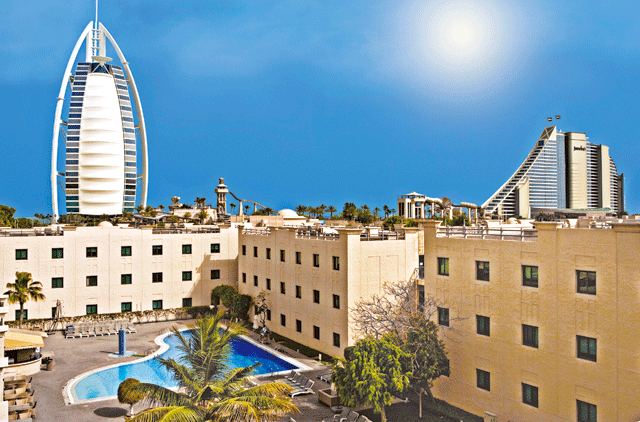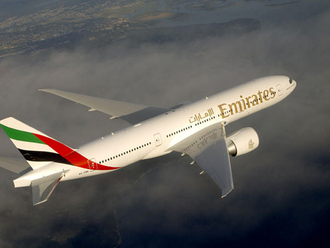As the UAE makes more targeted investments in the education sector to meet the growing demand for skilled professionals and also project itself as a global hub for research and higher education, the knowledge transfer from international universities to the UAE is set to intensify.
With 37 International Branch Campuses (IBCs), the UAE currently hosts the highest number of IBCs in the world, states a 2012 Observatory report.
Encouraged by the infrastructural facilities and financial incentives offered by the UAE government, institutions from Switzerland, like those from many other European countries, have been quick to seize the benefits.
Among Swiss institutes, the prestigious research institution Ecole Polytechnique Fédérale de Lausanne (EPFL) was the first to set up a Middle East outpost in Ras Al Khaimah.
“Though there is an abundance of programmes at the undergraduate level in the UAE and the region, there is a strong need for research-based graduate programmes, particularly in science and technology — the key enablers of knowledge-based and innovation-driven economies,” says Franco Vigliotti, Dean, EPFL Middle East.
Currently 50 students are pursuing master’s programmes and 12 students are working on their PhDs at the institute’s Ras Al Khaimah campus.
Walter Deplazes, Consul General of Switzerland, points out that plans are underway to foster relations between the UAE and Switzerland in the field of education. “The Emirati Swiss Friendship Forum has included an event called the UAE-Swiss Research Days, where we specifically focus on improving cooperation between the UAE and Swiss universities,” he says.
Transfer of experience
In a country where tourism is one of the biggest revenue generators, it’s hardly a surprise that Switzerland boasts some of the world’s top hospitality management schools. When the Dubai-based Emirates Academy of Hospitality Management, part of the luxury hospitality chain Jumeirah Group, decided to partner with a prestigious hospitality management school, it chose Ecole Hôtelière de Lausanne (EHL), one of the leading hospitality schools in the world.
“Initially, EHL assisted The Academy in the development of the curriculum and also to enhance the quality of its programmes. Now, we have our students going to each other’s institutes for a semester-abroad experience, which is a win-win experience for all students. While students in Dubai get opportunities to learn more about the Swiss hospitality industry, students from Switzerland can experience Dubai, the city with the highest density of five star hotels in the world,” says Dr John Fong, Director of Marketing and Associate Professor, The Emirates Academy of Hospitality Management. More recently, postgraduate students from EHL have also taken courses at The Academy, he adds.
While the UAE’s location makes it a convenient option for many international students, who live mostly within a three-or-four-flight radius, students from as far away as Europe and America also enrol for various programmes at the offshore campuses of international institutes for lucrative job opportunities in an emerging economy after the completion of courses. The home-away-from-home feeling is an added boost for many students in from around South Asia and the Middle East, who often prefer to have an international degree without travelling too far from home.
Dr Fauz Gataby, Director, International Development of Swiss Education Council (SEC), says, “To add Swiss flavour to its executive programmes, Al Ghurair University is currently working with the SEC. Together we plan to launch a host of new executive programmes to meet the rising demand for executive education in the UAE.
Pragmatic skills
Dr Fong of the Academy, an institute that currently boasts students from 60 countries, says: “Swiss hospitality is well known throughout the world. That, coupled with the opportunities for full-time employment upon graduation in a booming city such as Dubai certainly enables our academic programmes to stand out. Ninety per cent of our graduates find employment within the first six months of graduation,” says Fong.
Vigliotti of EPFL Middle East also points out that along with local students, EPFL also admits students from the Levant countries, the Gulf region, Europe, the US and Asia. Apart from offering internationally relevant courses, the research academy aligns its curriculum to the needs of the UAE government and industries.
The pragmatic and globally relevant skills and knowledge, that the Swiss education system offers, find resonance across the world and that is why students burn thousands of air miles in pursuit of courses from top education institutions in Switzerland.
“Education and research are an important and intrinsic part of the national investment and priorities in Switzerland. The secondary level prepares students to engage in academic studies at the national and global level, or to enter apprenticeship programmes that can train them to be at the leading edge in their professions. In all cases, the programmes work on performance-based sets of values and ensure that the individuals are prepared to fill functions in all professional fields of the economy,” explains Vigliotti.
Though Swiss universities have now started to establish outposts in the Middle East, hundreds of students from the UAE still travel to Switzerland every year to pursue courses in the main campuses.
Claudine Maager, Manager, SwissLinx, a company involved in assisting the UAE students to enrol in a range of study courses at schools and universities in Switzerland, says, “Although students from the UAE mostly look for admissions in hospitality programmes in Switzerland, the demand for Swiss boarding schools is also gaining traction in recent years. Many students from the UAE also apply for language courses, summer and winter camps.”
Emphasis on research
However, if the UAE wishes to draw more international institutes and consolidate its position as the education hub in the Middle East, it must make substantial investment at the graduate level, particularly in the scientific research and technology sector, suggests Vigliotti.
“Multiple studies have shown without ambiguity that the most competitive nations worldwide are all R&D intensive. Today, the UAE invests only 0.4 per cent of the GDP in R&D and it needs to increase its share,” he says.







